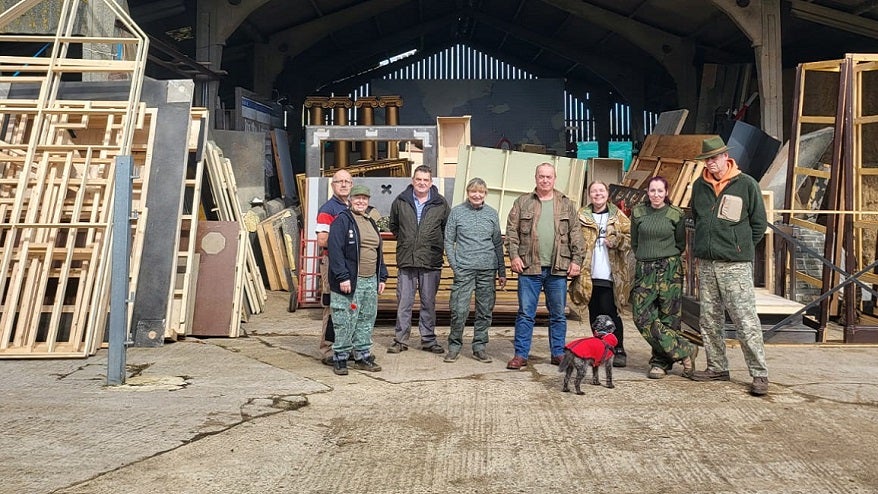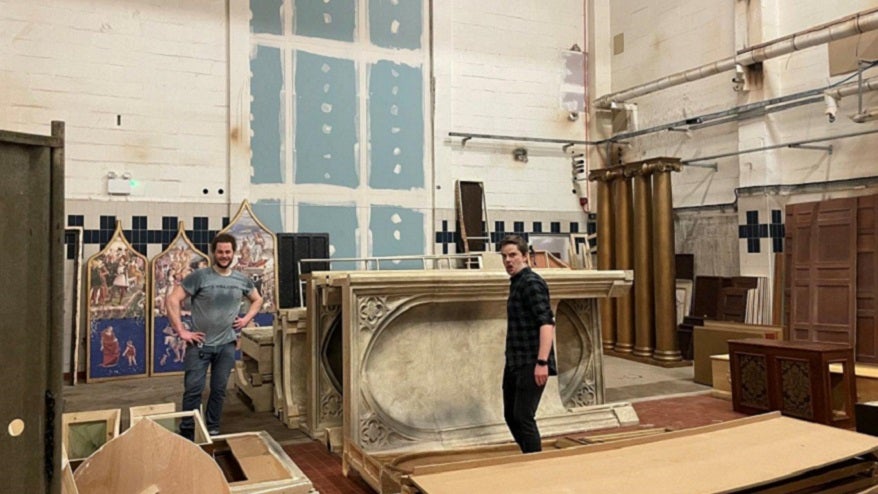Behind the scenes on Wolf Hall’s sustainable set-strike

Drama is one of the highest-emitting production genres in terms of carbon footprint, with more studios and specialist waste companies now collaborating on sustainable set strikes
Bristol’s Bottle Yard Studios supported film and TV sustainability consultancy Picture Zero to rehome 23 tonnes of scenery from Wolf Hall: The Mirror and the Light.
The production offices for the third in Hilary Mantel’s historical trilogy were based at the studios during the lengthy shoot, that took place across England and Wales at the start of this year. No stage space had been hired at The Bottle Yard, but the team made storage space available for all the scenery to be taken back there from the widespread locations, as a base from which to co-ordinate its onward recycling journey.
The sustainable set-strike involved the majority of the scenery going to The White Horse Military Show, a not-for-profit, community-interest project based in Neston Park Estate in Wiltshire, whose annual summer show utilised the Wolf Hall sets including doors, stairs, columns, wall coverings and raw materials. The recycled scenery is now available to be used free-of-charge by local theatres and students.

According to BAFTA albert’s 2022 report, the average emissions intensity for a drama production that year was 46.57tCO2e/hr, making it the highest-emitting production genre. The average hour of film or TV produces around 12.8 tonnes of CO2e.
Lisa Osborne, producer of Wolf Hall: The Mirror and the Light, said: “As our industry grapples with the overlapping challenges of climate change and resource depletion, it is more important than ever to tackle our consumption excesses and reduce waste.
“Having worked with them before on Becoming Elizabeth in 2020-22, I knew that The Bottle Yard would be enthusiastic partners in helping us to minimise waste on Wolf Hall: The Mirror and the Light and was delighted when Picture Zero stepped in to help coordinate our efforts. Together they made the whole process straightforward and collaborative.”

Katherine Nash, business & operations manager and sustainability lead at The Bottle Yard Studios, emphasised: “We see it as part of our role to support productions to work sustainably, and sometimes that requires flexibility and collaboration to find ‘workarounds’ to problems. It’s great to see more productions bringing experts like Picture Zero on board.
“On this occasion we thankfully had space to provide the storage that was needed to meet the team’s sustainability goals, and we did so with the knowledge that local organisations would benefit from reusing these materials. Drama is the highest CO2-emitting genre in film and TV production, so we’re always looking for ways to help productions reduce environmental impact.”
Lily Limmer, sustainability manager at Picture Zero, added: “From the outset, the producers were clear they wanted to donate and rehome as much scenery as possible. Usually we’d arrange for scenery and sets to be kept on the stages for a few days post-wrap, to give theatres, charities and schools enough time to come and collect pieces from a centralised store.
“However, Wolf Hall: The Mirror & the Light was shooting entirely on location. Production headquarters were based at The Bottle Yard Studios, but no stage space had been hired. The locations that filming was taking place at were often very remote, and there was no realistic way we could have arranged collections from them.
“Sharing our sustainability ethos to help productions reuse and recycle wherever possible, The Bottle Yard Studios agreed to provide a storage space on-site. This was a game changer! We were able to transport all scenery back to Bristol and had plenty of time to arrange collections. All in all, we rehomed over 23 tonnes of scenery, which, had it been sent to landfill, would have generated around 10 tonnes of CO2e.
“We simply couldn’t have done this without the support of The Bottle Yard’s staff, the production and construction teams. Our construction company JW Creative arranged the transportation of pieces free of charge to support our sustainability mission.”
Share this Article















